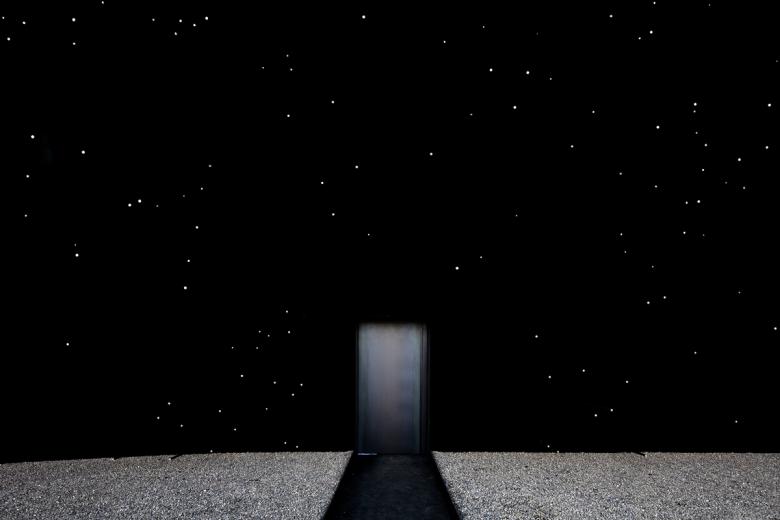A Building Cloaked in Darkness
Architect Asif Khan has realized a pavilion at the PyeongChang 2018 Olympics that is covered with Vantablack VBx2, a "super-black, non-nanotube visible spectrum spray paint coating" that absorbs 99% of visible light.
Khan has been working with Surrey NanoSystems, the manufacturer of the Vantablack nanotechnology, since 2013; he proposed using it in the UK Pavilion at Milan Expo 2015, but that commission went to another architect. It took South Korea's Hyundai Motor Company to turn the relationship into a tangible building, albeit a temporary one (the Winter Olympics take place 9-25 February 2018).
The inflected facades are punctuated by thousands of tiny white lights meant to resemble a field of stars against the depthless black surfaces. The interior, the exterior's antithesis, is white, devoted primarily to an installation made of water droplets.
Khan's project for Hyundai links the exterior and interior environments to the carmaker's Hydrogen Fuel Cell car. Per a statement, the black facade represents "the universe, the origin of hydrogen," while the "interactive water droplets inside the building are inspired by individual hydrogen molecules."



